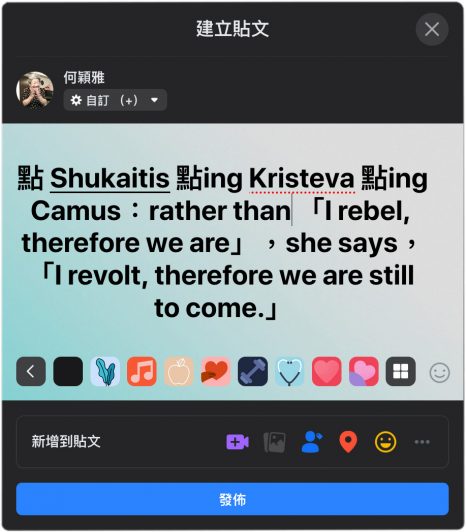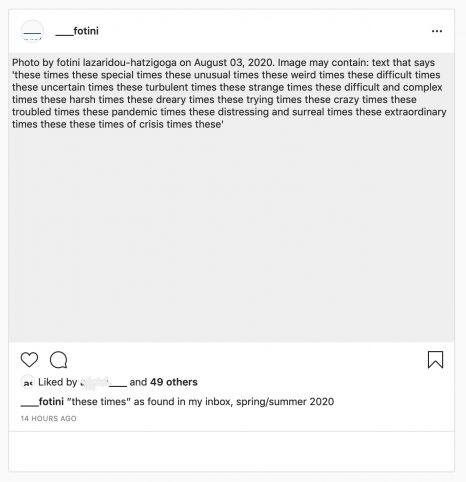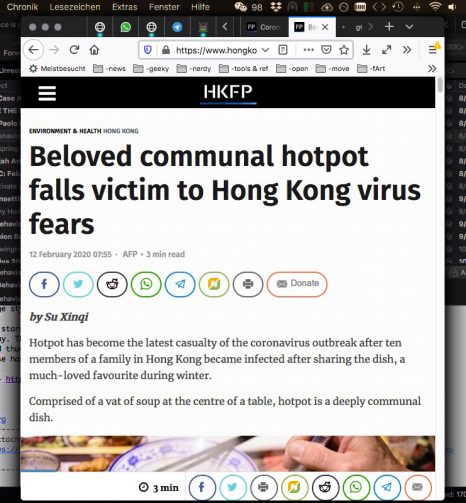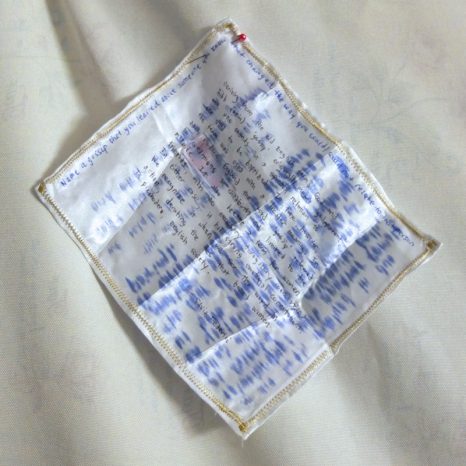— from Imaginal Machines, before that Revolt, She Said, before that The Rebel
Posted by 丫 | reply »“these times”
these times
these special times
these unusual times
these weird times
these difficult times
these uncertain times
these turbulent times
these strange times
these difficult and complex times
these harsh times
these dreary times
these trying times
these crazy times
these troubled times
these pandemic times
these distressing and surreal times
these extraordinary times
these times of crisis
times like these
—an index of “these times” as found in my inbox, spring/summer 2020
Posted by f | more »dopamine pathways…sigh
unfortunately this is what i thought you meant by ‘post’…
Posted by 丫 | more »i saw the End of the Century
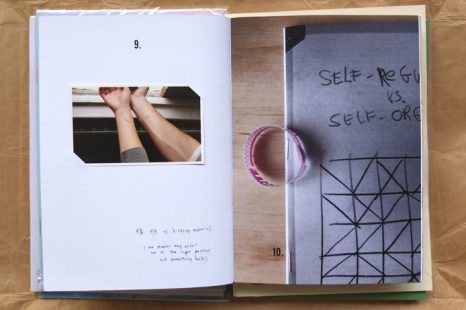 L and E with matching scar tissue, Arnhem 2001
L and E with matching scar tissue, Arnhem 2001
hallo, dear L,
Now that the cinemas have finally shut down (they tried their best to hold out as long as they could, seating only available in every other row), I could finally watch the end of the century go. And even if ever so subtle, it washed over me like the laps of a past self that had been thrown overboard so long ago, now cuddling up uncannily like the sound of the sea in a new moon darkness. Yes, as she said, “the way sounds, music, make you remember things you’d forgotten about yourself“.
I remember when you
(and everybody)
first got into skinny jeans,
but did you notice
that I was a bit deprecating about it?
It’s that self of we when we were more intertwined, so perennially you (is me, in admiration, is we, growing up together), and yet now grown into other realms. a wise father, still awkward (some of the cuts), still funny (still innocent), but more nuanced perhaps. It’s learning to speak from experience rather than in the voice of those we admire, just like you said. It is you, so perennially, ever you (they even look like yous), so much that i know you’ll laugh with me when i say that is a very gay man thing to do. Right around the end of the century you told me how you knew you were gay, and I can tell you from my woman’s experience that things on this end were not so straightforward, but that is me, and yous is yous. Those selves are another perception of time in a knowing-queer way, perhaps, and even so we can still be full of references (Buñuel, the assured knowledge of self in movement, so many conversations recalled, and a Barcelona to Linklater’s Vienna) because those are our experiences, too.
Amidst those fleeting points of reflective light that glimmer ever so often amidst now isolation, I was reminded to speak from a place of wisdom. Not to assume wisdom, but yes, to recall, revisit and retranslate those places we’ve been, the conversations we’ve had, and the feelings that have always been facts. Life, as she said (that someone else said), is less like the sturdy tree and much more like the weather. And fickle as that may be, we know beyond everything the colours of sunset and ensuing fall of temperature, the scent of rain, and those broad, striped gusts that ping the ear and make us hold tighter. That’s all there is. Weather, and wisdom. So let’s hold tight, as far away as we may be.
and on continuity:
a box-o’!
just slightly disappointed that it was
obviously empty—
javi drinking the last drop
repeatedly,
and ocho hesitantly taking it
still half full…
(or personality references?)
___
Fin de Siglo, now viewable online via Lucio Castro and/or a few links when you look for them.
Posted by 丫 | more »
Textual Notes PWSSSRFS…
(there are reasons to think about my body and hygiene these days)
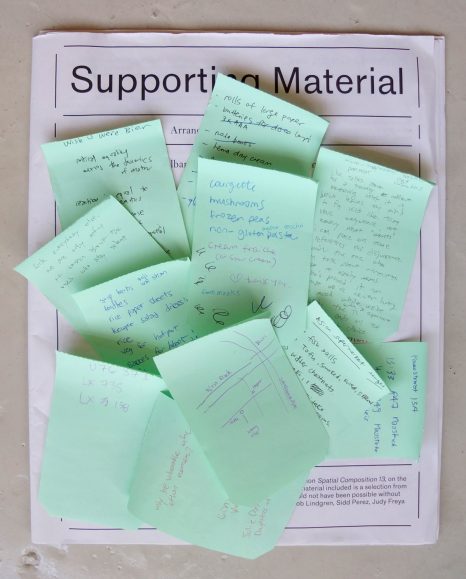
— Notes taken while on residency with Amy Suo WU at Motel Spatie; Arnhem Presikhaaf, 2020 January-February
In the time of that sojourn, a surface wound that stayed the entire time, irritated, flaming and hardened so much that it was narrated from being the oddity of a pimple on my hand to the paranoia of a wart-like abscess. It accompanied me during our conversations like a replacement for the biting of nails which had accompanied me since childhood, the extra psychosomatic conversation with myself to harmonise and discord with any other conversations going on in the room. And we spoke about intersectionality.
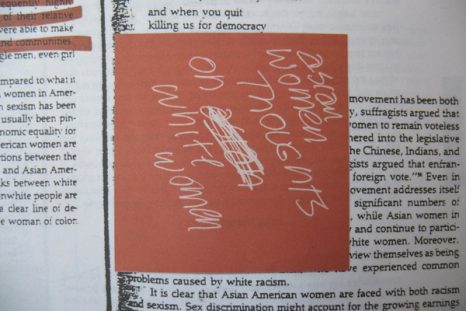
— from “Worlds in Collision: Multicultural Art History (Selection)” by Carlos VILLA, from Supporting Material by Celine CONDORELLI
I picked at it, making it bleed and scab over more than once, wondering if this would be the lifelong marker with which to remember this time. Other people get tattoos for such occasions, but somehow for me bruises, scars and mosquito bites were always enough. Sometimes I liked to think about the tiniest bit of spittle from an insect you never saw being smuggled transnationally, at peak seasons such that your body could carry two nationalities of mosquito saliva at the same time, recognisably different by the radius of red and degree of itch.
It was only a surface. But as my skin-scoring became manic, I remembered one of the first meals we shared together, when we were happy to find a few pairs of disposable chopsticks in the otherwise fork-and-knife-loaded space. A bit too brashly did I rip apart the two sticks and rub their ends together so as to smooth the rough edges in the way that we had learned, and somehow a little bamboo splinter had lodged itself into the meat between the thumb and forefinger of my right hand. This is the pressure point you are supposed to massage in order to release anxieties, and so it was that this residency——initially planned as an artistic labour——unfolded into my body subversively with a small army of histamines hardening a point known as 合谷 hégŭ, or LI-4. Like a pain to help release pain.
I had been telling everyone that it had been such a difficult year for me, or for most people in my context, rather, but now, when I had limited this sabbatical purposefully to run back into the fire, that heat seemed to flake away into something much more quietly insurrectionary, like the last hibernation before the end of the world. What were we gathering amidst these stories and meetings, me picking self-consciously at a surface wound on the back of my hand and scheming in those vague ways afforded by poetry? Would it be possible to be productive about this care in letting go, somewhere in between concern and a manic extraction of the conversation one has with oneself, parasiting off of the glimmers of knowledge and joy and jealousy of these people around me. So many intensities.
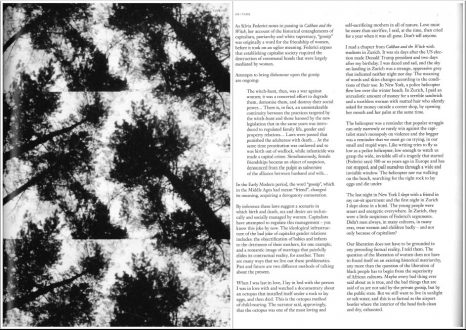
— “Witch-hunt: gossip has always been a secret language of friendship and resistance between women”, Hannah BLACK
In many parts of the world, women have historically been seen as the weaver of memory——those who keep alive the voices of the past and the histories of the communities, who transmit them to the future generations and, in so doing, create a collective identity and profound sense of cohesion. There are also those who hand down acquired knowledges and wisdoms——concerning medical remedies, the problems of the heart, and the understanding of human behaviour, starting with that of men. Labelling all this production of knowledge ‘gossip’ is part of the degradation of women——it is a continuation of the demonologist’s construction of the stereotypical women as prone to malignity, envious of other people’s wealth and power, and ready to lend an ear to the Devil. It is in this way that women have been silenced and to this day excluded from many places where decisions are taken, deprived of the possibility of defining their own experiences, and forced to cope with men’s misogynous or ldealised portraits of them. But we are regaining our knowledge. As a woman recently put it in a meeting on the meaning of witchcraft, the magic is: “We know that we know”.
— Witches, Witching-hunting and Women, Silvia FEDERICI
Among you, it becomes difficult to compare all that has been said to all that has not been said. All of these conversations. And these words are a conversation with those conversations, if not simply out of a question of translation but out of the need to make space for myself in this constellation of you(s) and me(s). To ascertain, like that book I took from your bookshelf: Feelings are Facts. We(s) would need to meditate through hours and hours of these discourses in order to sift though the medley of feelings that make up this moment, and that is a fact, too. Yes, as the witches say, “We know that we know“.
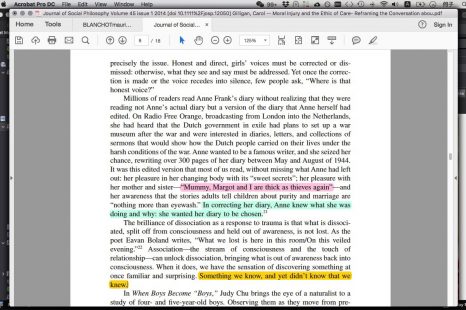
— “Moral Injury and the Ethic of Care: Reframing the Conversation about Differences”, Carol GILLIGAN
And maybe I know too many things. My head is filled with all sorts of banalities like the facial expressions of strangers and the taste of your favourite Grüner Veltliner and the prick of winter mosquitoes. Like the approximate sojourn of a piece of shit that appeared a few days after I arrived. It was the lack of anyone’s care to remove it from the narrow path between our residency room and the project space, making it such that you took the long route around every time, while I forged ahead to play hopscotch. I had the forethought that this dog I never saw had left the natural wastes of its circulating body just like the mosquitoes, and perhaps I should bring other contraband back this time as another memento of my stay. But an uncared-for poop was just a parallel temporary visitor like us to this space motel, and the day before I departed, what were now like hardened coal nubs finally blew away with that strange storm of not very much rain. Perhaps its winds were so great it blew its own rain away, a storm having a frightening conversation with itself. Its utterances came out like screeches and gales that shook the glass of our cove. From inside, we lifted our heads up in awe, and when we went outside we walked at strange angles with our heads down, pretending not to overhear. Buddha was also blown violently away that day, falling off of a neighbour’s balcony and left as an Asian corpse shattered in the white neighbourhood. In the beginning I kept thinking we would have been a strange sight here, our little crew, but actually there was nobody around most of the time, and we were left to play on our own like children at the slumber party. We stole time that way, turning their money and our own productivity into a space for taking care. Even so, I walked on that shit at least once, but you took time, and we cleaned up our tracks together. Self-quarantine, if you want to call it——I gained ten kilogrammes, too——but something else feels lighter because I know we had taken it on together. This takes space and so it was that ‘project ruimte’ was exactly that, not as the space for projects but a project to make space, as a fact of feelings between us——to read together with long pauses in between, to write letters from near and far, and to eat and resist the fallen communality of a shared meal out of one bowl. To be together and trust in someone else’s voice to guide when our eyes are closed.
I don’t know yet how to bring this space into visibility. And maybe it doesn’t have to, except as mischievous glances and giggles between those of us who know, and even if you don’t see us you will feel the smiles in our voices in that space behind your ears and in front of your neck——a tingling somewhere between an itch and a tickle to make chords and discords in you, too. Take care.
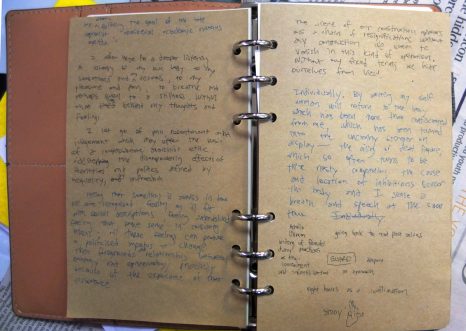
— Altered quotations and notes taken from the afwasdoekje reading group, PWSSSRFS No. 1, 2020 January 25
Posted by 丫 | reply »
慢遞件 dispatch HQL-299
// 內容 CONTENTS //
《聖誕島,自然而然》 Memorial to the Last Christmas Island
Pipistrelle, from the series Christmas Island, Naturally by Robert ZHAO
Renhui (趙仁輝作品)
// 訂量信息 QUANTITATIVE //
分兩件的作品 one artwork in two pieces
(蝙蝠聲音探测器和麥克風 bat sonar detector and microphone)
185 x 134 x 82 cm
// 出發點 START POINT //
香港鰂魚涌 Quarry Bay, Hong Kong
// 到達點 END POINT //
新加坡中山公園戴斯飯店 Days Hotel by Wyndham Singapore at
Zhongshan Park, Singapore
// 慢遞人員 COURIER //
易拎何子 PORTABLE
// 運輸狀態 SHIPPING STATUS //
派送成功 SUCCESSFULLY RECEIVED 2019-06-09,10:57
慢遞招募發布 ROUTE REQUESTED 2019-05-29,16:41
我本來沒想記錄這條線,因為突然間——也是機緣巧合——我接了一條付費的線路。但是在飛機上時,看到了一場異常漂亮的雲,像是被蝕刻的懸崖、翻滾的海浪、手提箱又或是UFO排著隊一個一個湧現,一個騎伏在另一個上面。我想著拍張照吧。我想象著熙熙攘攘的人們像雲朵一樣擁擠在這個光滑無菌的飛機場里,高高的、有弧度的天花板下然後,另一個慢遞員說他不確定這趟旅程是否能激發任何想法,因為乘坐的是飛機而非24小時的火車;飛機場真的太無菌了。然後,我回應他說我喜歡高昂情緒在這種無菌環境中所帶來的強烈對比。然後,我覺得再另一個慢遞員太天蠍了,在表達願意承接另一條線路時對「愛」這個詞的使用充滿算計。好像如果她不愛我了,那條線路也就終止了。我不確定因為愛而讓一個人捲入工作是否是可恥的,又或者如她所言,一再用荒唐的量化思維衡量事物,反映了我們自身的被奴役,而且不過是按照又一個資本主義邏輯在走。另一個慢遞員說,這個天蠍座慢遞員十分擅長太戀愛——就字面意思,談論浪漫的戀愛(演講,公開發表言論,表演)。但我們對愛到底能說什麼呢?我覺得她談論愛的時候是在利用我,但也許我拜託她慢遞時她也同樣覺得被利用。也許這就是愛的勞動⋯⋯這種愛的類型就是我們厭惡父母所有的那種,哪怕鬧翻天最後還是綁在一起。一直在一起。
這個慢遞員如此感慨於另一個慢遞員討論愛的能力,也說明她在情緒上遭遇了某種困頓。這些話不知道怎麼說。這也是勞動?感覺卡住,搜腸刮肚,想要一吐為快?就像是情緒進入了一個無菌的環境,熙熙攘攘在胃和掛在你嘴後面的那個小東西的大門之間奔波,可航班總是一再延誤。這真是項艱巨的任務。
我想起了一張飛機機翼指向雲海的照片,是一位朋友在2011年拍攝的,當時他48歲,第一次坐飛機。其實他是從北京到廣州去工作,但是在雲端,他寫了一首詩。
這會兒,飛機上的空調還是一向冷的讓人絕望,但我們正朝南飛行,太陽在我這一側。我一直緊靠窗戶以取暖,但我沒有拍雲。
I didn’t think about documenting the route this time, mostly because I felt shame to suddenly, by chance, be carrying a route for financial gain. But then while on the airplane, an especially beautiful explosion of clouds, like ravaging cliffs and waves and suitcases and UFOs waiting in line, one after another, bulbous one on top of another. I think about taking a photograph. I think about swathes of people like clouds rushing under the tall, curving glass ceilings of sleek and sterilised airports. About how another courier said he was not sure if he would be able to come up with inspired documentation this time, travelling by plane as opposed to the 24-hour train ride of his previous route; airports are too sterile. About how I then responded that I like the contrast of such high emotions in those sterile environments. About how I felt like she was being so scorpion in her calculated use of the word love when talking about her willingness to take another route. That courier route would stop when she stopped loving me, supposedly. I was not sure if it should be shameful to engage someone to work for love, or, as she said, to run again on something absurdly quantifiable, meaning facing up to our servitude, and just simply following another capitalist logic. Another courier says that scorpion courier is very good at 談戀愛——literally, to talk about romantic attachments (and the act 演講, of talking publicly, is to perform). But what can we really talk about love? I feel like she’s using me when she talks about love, but perhaps just as she feels used that I ask her about routes. That is the labour of love, perhaps…the kind that we resent our parents for, the kind that keeps them together after all those explosions and all this time. All this time.
The courier that is impressed with another’s ability to talk about love confesses that she gets stopped by emotion. All these words that don’t know how to come out. Is that a labour, too? To be stuck with our hiccups and having to work around not knowing how to liberate difficult words? Like emotion in a sterile environment, rushing all about somewhere between a stomach and the gate of that little thing that hangs in the back of your mouth, even though the flight paths are on perpetual, repeated delay. It is a lot of work.
I think about the photograph of the wing of the aircraft pointing toward a sea of clouds, the one photographed by a friend in 2011 on his first journey by plane at the age of 48. He was on his way from Beijing to Guangzhou for work, actually. But while up in the air he wrote a poem.
The air conditioning on this plane is as usual on high for sterility, but we’re flying south, and the sun is on my side. I keep leaning close to the window to keep warm, but I don’t take a photograph of clouds.
Posted by 丫 | reply »spring sprang sprung
sachiko learning to do a backflip in katsuhito ishii’s “the taste of tea”
Posted by f | reply »「尋找問候」系列第三章(wish you were here)
倫敦 london – 英属哥伦比亚省列治民市 richmond, british columbia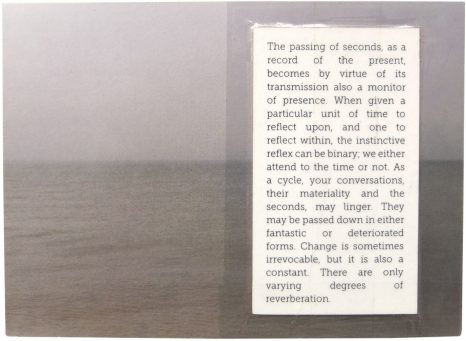
dearest,
that’s heavy. hope that it is not a reflection of your current state.
is it?
but i discovered this today, which whether or not you like the music, you may begin to love simply by the way it is described:
Talked to you on the phone the other day——WhatsApp voice call——and I noticed the dissecting and unsettling silence fading in between each spoken word, like someone holding the breath or stopping time. Or a tap closed between each filling of a glass. It was a clean, cleansed, silence; one purified by the dullness of calculation, of automation, of regulation and optimisation.
I remember the feeling of talking with friends via landline connection——it felt like a direct channel opened up between our ears and tongues, an airiness of circulation. I could hear the other person breathing and the slight static noise of electricity hardwiring us. Now I don’t hear the other person’s breath anymore——the algorithmic sound detection for controlling the threshold of the microphone transmission seems to not register breath as a signal deemed necessary for communication.
![]()
![]()
…
日惹 yogjakarta – 墨西哥城 mexico city
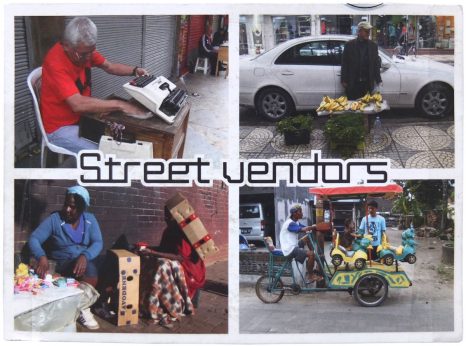

wonder if you remember that we had said we would go on holiday together last year.
wonder how you and your child are doing.
wonder if you remember that i had wanted to make strange models for your movie.
wonder if you remember that i haven’t written back to your e-mail.

can a contemporary condition become one’s psychological impairment, the wonderous thing, like her blank auto-replies, or trying to imitate the words of a great master:
⋯⋯很想对着那些无忧无虑的娇花倩草哭上一场。可她的眼泪已经被巨大的悲哀征服了,她这才明白绝望者是没有泪水的。
⋯⋯All she wanted to do was cry into those graceful and carefree petals, into the beautiful grass, but any tears in her had already been conquered by tremendous sorrow, and she finally understood why those in utter despair shed no tears.
— 遲子建 CHI Zijian,“亲亲土豆 Potato Kisses”
Posted by 丫 | reply »